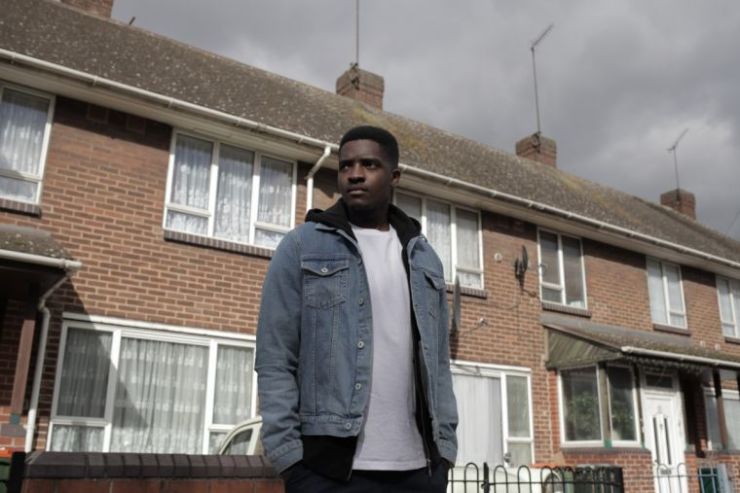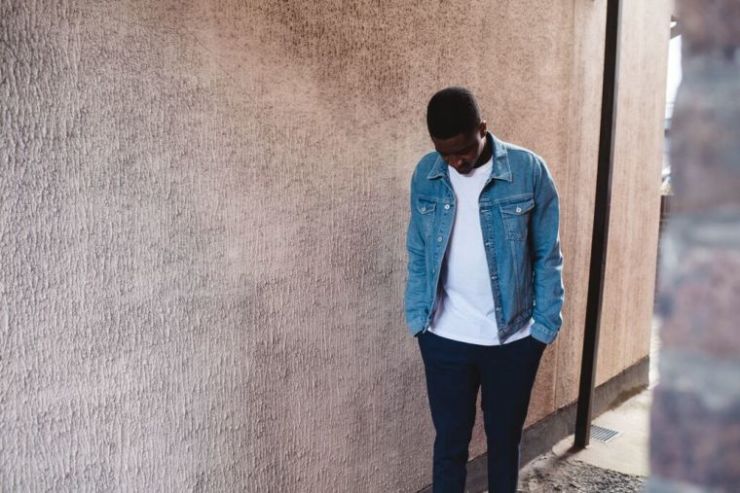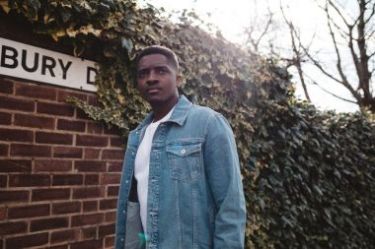Guvna B is one of the biggest Christian rap artists on the scene. He has produced seven albums and his fourth was the first rap album to top the Official Christian and Gospel Albums Chart.

By the age of 20, "The Guvna" had won the prestigious MOBO award and has since worked with artists such as Destiny Child's Michelle Williams, Keisha Buchanan, Matt Redman and Jocelyn Brown.
Behind the accolades and stage presence however, Isaac Borquaye is surprisingly shy. Following the release of his latest number one album Secret World, Christian Today sat down with the star.
Now aged 26, he is a man deeply impacted by his background and upbringing. Born to Ghanaiain parents, Borquaye grew up on estates in east London before moving out to Essex as a teenager.
"I never really felt like I fitted in. I was quite different from my mates and on top of all that I was a Christian so I was extra weird! I spent most of my teen years trying to be someone I wasn't," he said. "The album sheds light on my secret world."
He's true to his word. The album discusses depression, suicide, life among gangs, and knife crime. During the interview he talks openly about his friend, Danny Locke, who killed himself by jumping off a high rise building in Canning Town, East London. He also spoke of his own struggles with gang culture and chasing after girls. And he said the only reason he didn't get involved in more violent crime was because he was "too scared". Borquaye admits he has laid himself bare.
"I grew up in a church that was really happy clappy and I didn't feel you could take about real issues," he said. "I felt like if you were to tell people what you were really going through they would look at you in a funny way – like quite judgemental.
"So I thought for this record I am going to be vulnerable and honest about what I am going through. Hopefully there is someone there thinking, 'oh I didn't realise that – he's going through the same things I am going through and I can relate to that.'
"It's not a record that has all the answers but it's saying its OK to talk about it. That is why it's called Secret World because a lot of us just hide the stuff we're going through."
This thought process reveals something else about the man behind the "Guvna B" brand. Borquaye takes a keener than usual interest in his fan club, most of whom are young teenagers from an urban background like him.

"I would love to do mentoring full time," he said. "If I had someone when I was 14 it would have been so helpful."
He says he "never wanted to have a following" but now he has one, he seems to have taken the responsibility seriously. He currently mentors at least 10 teenagers and although he finds being a role model "a lot of pressure", he doesn't expect himself to be perfect.
"I don't want young people to think they have to be perfect but I want them to know they have a perfect God who made them unique and special. Whatever shortcomings they have, God can take care of that," he says.
"Teachers are awesome, politicians are awesome but we need more people from urban backgrounds mentoring kids because they can relate to them in their struggle and know what it is like to have a mum who works late to pay the bills and a dad who wasn't around much and drugs sold outside your house.
"I think it is important we have relatable role models."
Borquaye became a Christian after an extraordinary set of circumstances at the age of 16. He describes how he was playing football in the rain when lightning struck the playground.
"I was in a daze for about 15 seconds and gradually got up and saw one or two others get up. But in the middle of the playground was my friend Izzy who was just lying face flat. So we all ran over and he's got holes all over his blazer and his trousers and that is when we realised the lighting had actually struck him and he wasn't breathing. The teachers came out and tried to resuscitate him but they couldn't do it.
"So we called an ambulance and they came with a defibrillator and started pumping his chest but they couldn't get him breathing either. So he gets rushed to hospital and the next day we found out he was in intensive care because he couldn't breathe himself.

"I didn't pray much but that night when I got home I said a prayer to God. I said something like: 'God my friend is in a really bad way and if you could help him I'd really appreciate it. Amen.' That was probably my first genuine cry out to God."
Two weeks later when nothing had changed he says he had given up. It was a make or break time, he says, and he chose to "hang out with the wrong people and do a lot of wrong stuff."
He continued: "I guess that was my escape".
"Then about a month later I got home and a mate told me that Izzy was in a really bad way and they were going to have to switch off his life support. So I just said a prayer to God: 'God, I know I haven't been living the life that you would want, but I promise if you come through for my friend I will become a Christian and try to live my life for you.'
"Then about three days later I get a call saying the doctors can't explain it, his family can't explain it, but he's alive and started breathing again and looking as if he'll make it through. And he did.
"I don't know what it was but it was something in my heart that wouldn't shift that said it wasn't a coincidence and God did that. That was the turning point for me. From that moment on I decided I was really going to try and seek Him, read the Bible and find out more."
Rap, he said, has always been part of his life. But from that point on: "I started writing lyrics for God."
Despite his softly spoken exterior there is a real steeliness to Borquaye when he moves on to discussing diversity in the Church.
"I find ignorance irritating," he said. "I am well educated – I mucked around at school but now I have a degree and I'm not an idiot. But when I go to big Christian conferences or festivals people comment on how well spoken I am.
"People assume if you look a certain way or grew up in a certain area then you're not educated. That ignorance is disappointing among Christians."
Despite his own success, he says there is a subtle unconscious discrimination against black Christian singers.
"I think people from urban communities get viewed differently and they don't get the same opportunities. I know people writing great music but they don't get a look in."
He asked me to name three popular Christian musicians in the UK. I listed three off the top of my head. They are all white. He then asked if I could name any popular black Christian musicians. Perhaps it was in part down to my rather apathetic following of the Christian music scene in the UK, but I couldn't.
"It is an issue," Borquaye insists. "And it is not that black worship leaders need to write better songs."
What about his own success?
"I feel like God's favour has really got me here. Whenever I get publicity and have an opportunity, I try never to see it as a personal triumph but as something bigger that I am part of."




